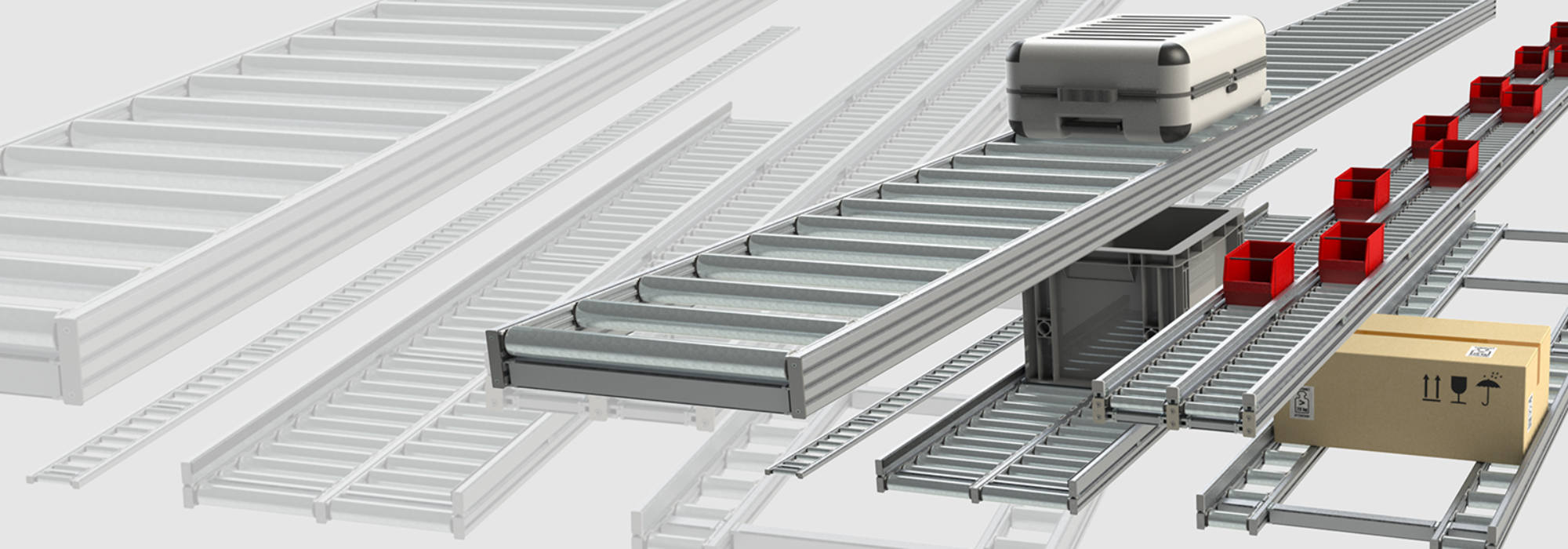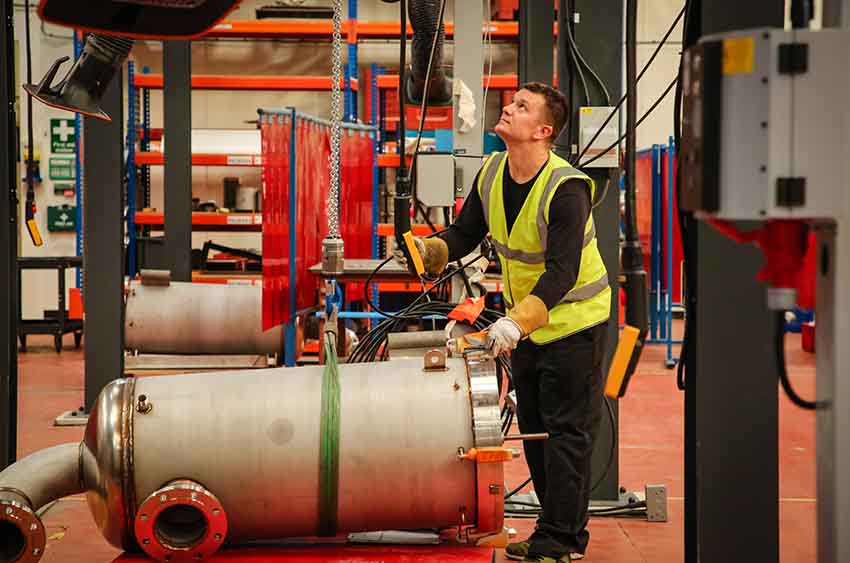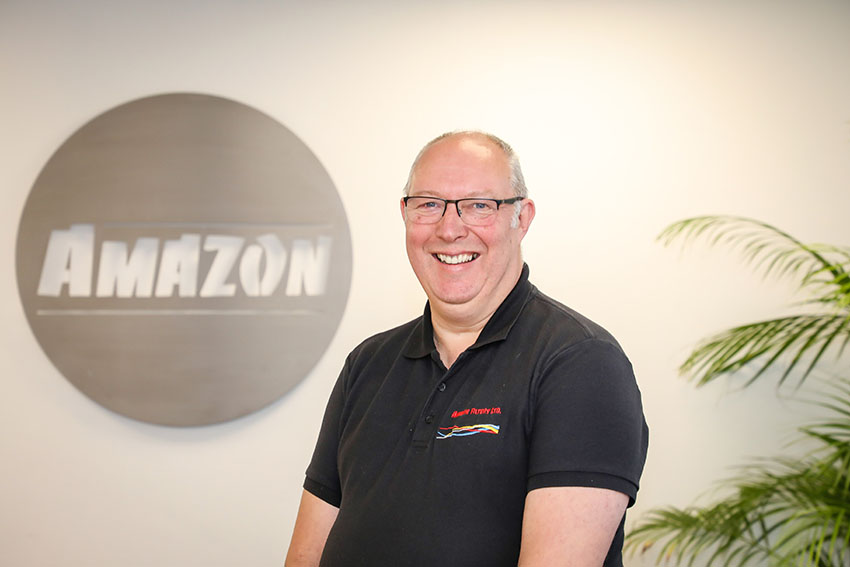Amazon Filters is one of Europe’s leading manufacturers of filter cartridges and housings. Its precision-made products support critical liquid and gas applications across the world in all process industries that rely on high-quality filtration. They include municipal water services, renewable energy, oil and gas, pharmaceuticals, food and beverage, chemical processing and liquid coatings. To help service such a wide range of sectors, Amazon Filters is progressing a capital investment program designed to enhance ‘quick and able’ production capacity at its main manufacturing center in Surrey, UK.
Expanded factory space, new automation equipment and the in-sourcing of pressed and machined components are helping the company increase its reach into international markets and prevail over larger competitors in response to urgent orders, many of them requiring complex or bespoke solutions due to challenging production scenarios.
Interview with Neil Pizzey, Managing Director at Amazon Filters.
Easy Engineering: What are the main areas of activity of the company?
Neil Pizzey: We offer tens of thousands of permutations of our filters and housings, and routinely supply customized products on short delivery times. We aim to turn round orders from all sectors of industry that deal with process engineering and fluids. Our ’quick and able’ capacity is the result of us in-sourcing the bulk of our large-scale manufacturing activity. Improved in-house capability coupled with less reliance on sub-contractors gives us more scope to control costs, lead-times and flexibility in managing orders. Recent examples include our response to an urgent filter demand from a global biopharmaceutical provider based in Paris. They required hundreds of filter cartridges to help with a solvent filtration process. While another, bigger manufacturer quoted a lead time of three months, we were able to move much quicker and agree bulk delivery within two weeks. It’s all about providing customers with peace of mind, cost-efficiencies and guaranteed levels of filtration quality.
 MONTECH’S NEW ROLLER CONVEYOR SYSTEMS – MAXIMUM FLEXIBILITY FOR MODERN CONVEYING PROCESSES
MONTECH’S NEW ROLLER CONVEYOR SYSTEMS – MAXIMUM FLEXIBILITY FOR MODERN CONVEYING PROCESSES
E.E: What’s the news about new products?
N.P: We have recently launched a high-performance product range to support filtration processes in the oil and gas industries. SupaSep LGP is the latest evolution of our liquid-gas coalescers, used extensively in upstream, midstream and downstream operations. SupaSep LGP can be supplied in a bespoke housing or as direct retrofits. The filters incorporate a patented process for both interplead and melt blown drainage configurations. Among other products launched recently are filter housings to aid the production of biopharmaceuticals. These conform to the latest ASME BPE standard and its criteria for hygienic design, materials of construction and fabrication. For the chemicals and coatings industries, we have introduced the VisClear II range of filter cartridges. These help with the challenging filtration processes required for the manufacture of high-viscosity fluids such as resins, adhesives and coolants, many of which require processing at high temperatures.

E.E: What are the ranges of products?
N.P: We provide a comprehensive range of flexible and customizable membrane and depth filter cartridges for both liquid and gas filtration. Our depth filter range features our SupaSpun and SupaGard product series and our pleated filter brands SupaPore and SupaPleat. To protect membrane filters, we supply versatile microfiltration products for the pre-filtration stages of many industrial processes such as the sterilization of liquids and gas. We also supply related housings, with a choice of materials and coatings, that are designed to hold and protect drop-in cartridges and bags. Our cartridges and housings come in a wide variety of formats and lengths to suit specific applications. For example, our bag filters can be used for both retrofitting existing housing and designing new process systems. We also supply customized housings and skids, a bespoke, versatile way to support the efficiency or capacity of an existing process.
E.E: At what stage is the market where you are currently active?
N.P: The market continues to grow globally and there is a clear customer focus on quality, cost efficiency and environmental sustainability. Filters can play an important part in reducing emissions from many industrial processes and we believe this will continue to be a factor in driving market growth across many sectors.
E.E: What can you tell us about market trends?
N.P: We service increasingly global markets. Around 70% of the orders we receive for filter cartridges and housings are for export, a trend that has grown steadily. And we expect both our European Union and worldwide reach to intensify over the next three to five years. In line with our ‘quick and able’ manufacturing reach, we are paying a great deal of attention to markets outside Europe. We have recently appointed in-situ business development managers for the Americas and Asia-Pacific regions while strengthening our distribution networks in both territories.
E.E: What are the most innovative products marketed?
N.P: The versions of our depth filters SupaSpun and SupaGard that are supported by innovative KilBac technology. This involves a melt blown fiber construction, high-performance antimicrobial and antialgal additives, and the harnessing of micron-sized particles containing active silver, zinc and copper. Combined with a base polymer, the use of such particles is designed to attack the growth of bacteria or algae on the filter, so extending cartridge life. We followed up laboratory analysis of SupaSpun KilBac and SupaGard Kilbac with rigorous tests in real-world, offshore conditions to check how well the technology protects seawater membranes. Our main criteria for success lay in demonstrating decreased blocking, robust membrane protection and the potential for increased service life. We were thrilled with the results. There was compelling evidence that the use of KilBac variant filters in seawater filtration systems can reduce the requirement for changeouts, more than double the service life of cartridges at the pre-filtration stage and keep processes operational at times of increased bacterial challenge. This combination of reduced downtime, the avoidance of costly clean-in-place cycles and the reassurance of more effective throughput gives confidence that customers can expect to see substantial cost savings on their filter spend through the use of KilBac technology.

LINE OF SIGHT. Neil Pizzey, Managing Director of filter manufacturer Amazon Filters which has passed its Achilles UVDB Verify Audit with flying colours. The firm scored 100% in two categories, Environment and Quality, 99% on Health and Safety, and 96% on Corporate Social Responsibility.
We have also introduced Contour Gas, an innovative product designed to stop black powder contamination accumulating in upstream pipework and harming downstream equipment and instrumentation as it is swept along at high speed in the gas flow. Contour Gas is a high-volume filtration solution with strong fibers and a one-piece, core-free construction that is resistant to unloading and media shedding. It is ideal for offshore natural gas pipelines, other gas-carrying transmission lines, supply tanks and gas processing plants, all essential areas where long service life and ease of change-out is crucial.
E.E: What estimations do you have for 2022?
N.P: Building more efficiency into operations has never been more essential than in this critical year as companies and organizations navigate acute budget pressures caused by issues such as supply chain disruption, the situation in Ukraine and the lingering impact of the pandemic. At the same time, all industries that rely on process engineering need to ensure the effective management of cost while safeguarding the environment. Sustainability is a headline message this year and will continue to be for the foreseeable future. We believe regulatory regimes that drive environmental standards and actions will only get tighter around the world. In line with this, our focus will remain on making quality filters that last longer, reduce waste, minimize system contamination and champion environmental sustainability. An example of us helping the better use of resources can be seen in the UK’s municipal water sector. Here, we directly support water companies’ sustainability and AMP7 ambitions, including their management of climate events such as flooding and drought.

